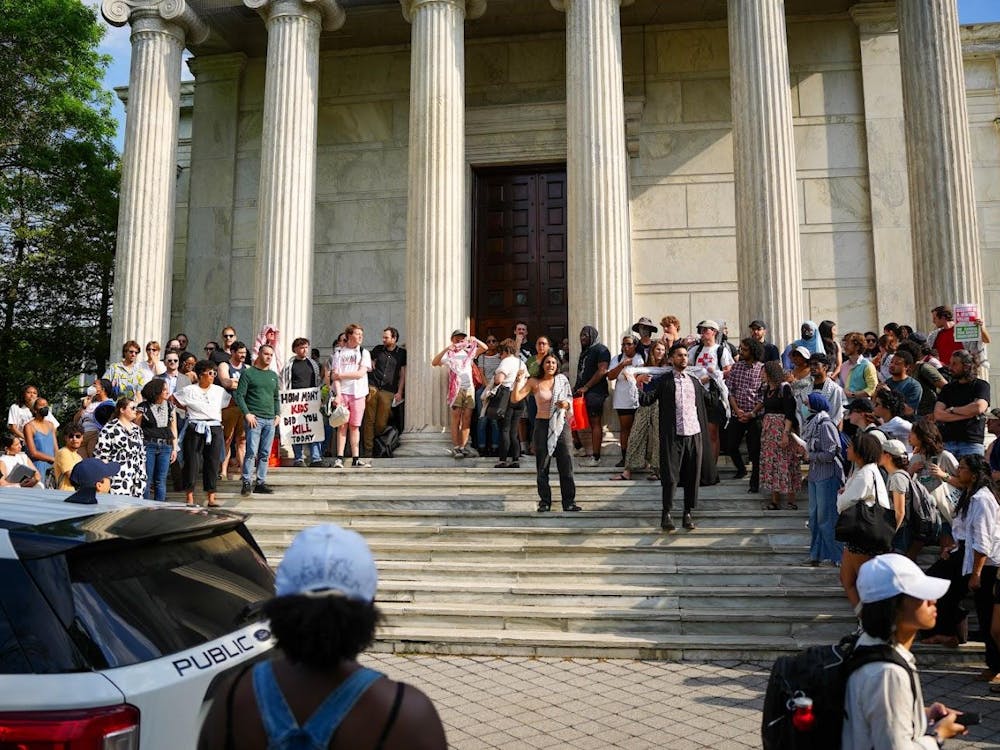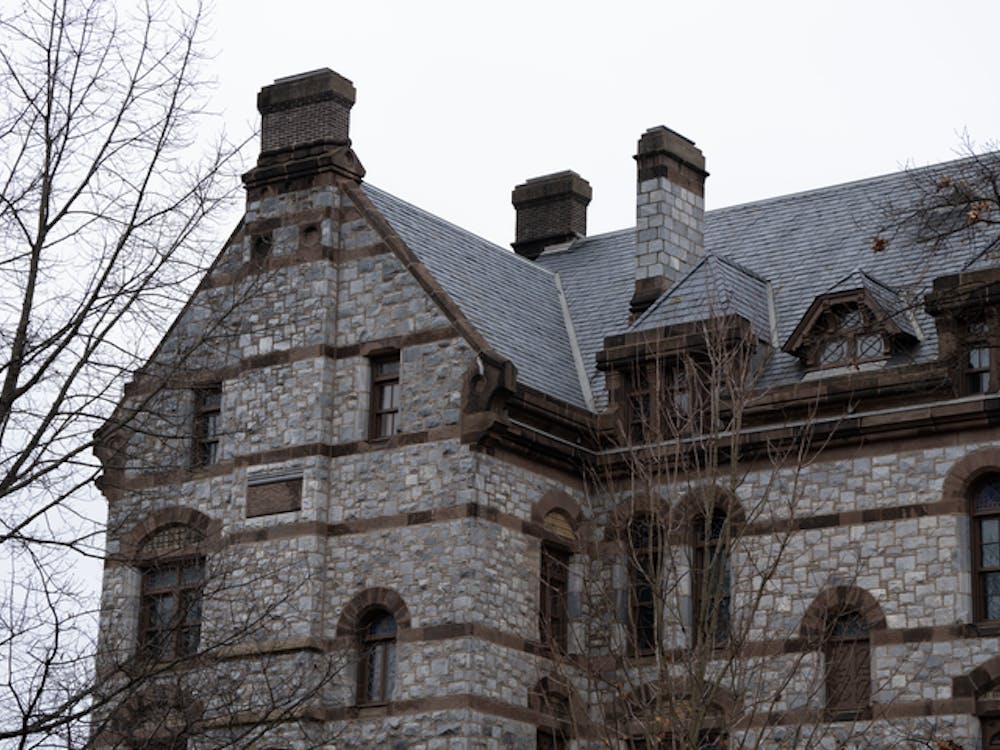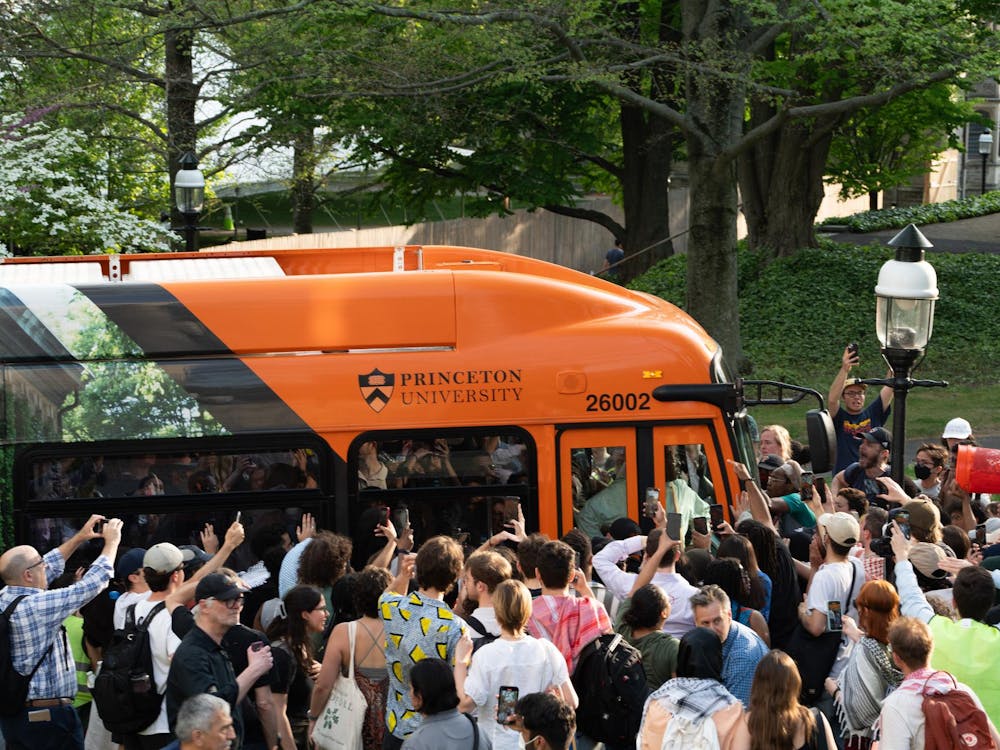There is a special sense of hopelessness that accompanies leaving the Trustee Reading Room in Firestone Library at 2 a.m., paper unfinished and coffee in hand.
I’ve spent more nights than I would have liked searching for a quiet study space after the libraries have closed. During the regular academic year, Firestone closes at 11:45 p.m., while the Trustee Reading Room and Lewis Library remain open until 2 a.m. The University does not have a 24-hour library, so after 2 a.m., students are on their own.
Granted, the University does have all-night study rooms, mainly in the residential colleges and upperclassman dorms. However, students have argued that that is not enough. In the recent Undergraduate Student Government “What Matters” campaign, students specifically identified a need for longer library hours. Sixty-two percent of poll responders wanted Firestone to be open 24 hours during midterms and finals, and 60 percent of poll responders wanted to expand Firestone’s hours, especially during exams and before Dean’s Date. It’s clear that students want at least one library with 24-hour access, especially during crunch times. Despite this student support, USG recently decided against pursuing this policy change due to the additional funding that would be required to support after-hours staff. Instead, they plan to “raise awareness of study spaces that are already available.”
While some sort of study space map may be helpful, it does not fill the need that students have identified. A library is not just a study space; it provides so much more than just a quiet room. For instance, libraries act as safe environments; entry to Firestone requires a prox and is monitored by a security guard. Libraries provide reliable access to the books, computers and scanners that students often need to complete their work. In a Library Journal article about the growing popularity of 24-hour academic libraries, the library director of Whitman College, a small liberal arts college, explained the importance of 24-hour access: “Our students have come to depend upon the library being open. They all say that just knowing it is open is important. If they need a quiet place, or if they need to get a book, they know they can get it. I think especially at a residential liberal arts college the library as place is enormously important.”
Unfortunately, 24-hour library access has long been a losing battle at the University. For over10years, USG has led multiple efforts to designate a 24-hour library study space. The initiatives have always been defeated. Administration raised concerns that keeping a campus library or libraries open 24 hours would compromise student safety, promote poor study habits and, most importantly, prove too expensive. As USG argued this time around, the University would have to pay for additional staff and the cost of utilities for the extra hours.
However, it seems unlikely that keeping one library open 24 hours would be financially impossible for a school like the University. Most of the other Ivy League universities have longer library hours than we do, and several have libraries open 24/7. In order for us to do the same, we may not have to make any radical changes or incur radical costs. In a 2013 study of academic libraries’ transition to 24-hour schedules, several schools found they were able to successfully manage their operating costs by only being open 24 hours a day for several nights a week. Even keeping Firestone open for 24 hours once or twice a week — or only keeping one section of Firestone open 24 hours — would be a massive improvement over the current situation.
Given over 10 years of pushback and inaction from the administration, it is understandable that USG has changed its tactics, and is no longer advocating for 24-hour library space. But, as the polls have shown, the need among the student body still exists. Hopefully, the University will respond to its students and consider keeping one library open 24 hours, even if it is only for one or two nights a week.
Sarah Schwartz is a historymajor from Silver Spring, Md. She can be reached at seschwar@princeton.edu.








